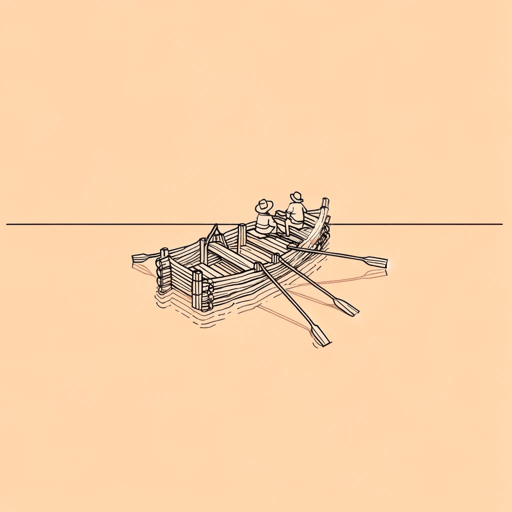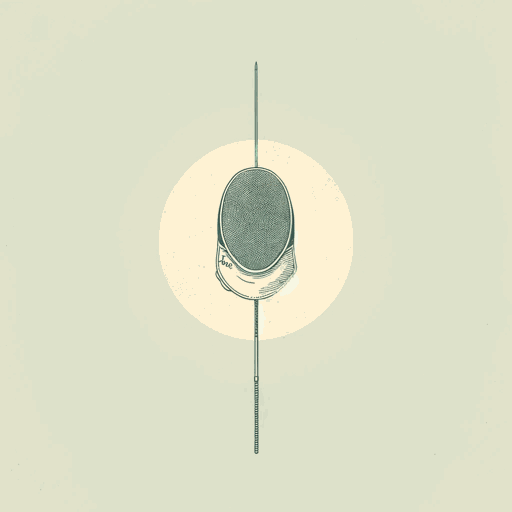57 pages • 1 hour read
Jewell Parker RhodesSugar
Fiction | Novel | Middle Grade | Published in 2013A modern alternative to SparkNotes and CliffsNotes, SuperSummary offers high-quality Study Guides with detailed chapter summaries and analysis of major themes, characters, and more.
Summary and Study Guide
Overview
Sugar is the second book in the Louisiana Girls Trilogy, written by award-winning author Jewell Parker Rhodes. Each of the historical fiction books leans into the genre of Southern literature, and follows three different girls living in Louisiana at various points in history. Sugar, originally published in 2013, was awarded the Jane Addams Book Award by the Jane Addams Peace Association and listed as an ALA Notable Children’s Book by the American Library Association in 2014, among many other awards. The novel, which focuses on the relationship between Black Americans and Chinese immigrants who moved to the American south to work on plantations after the Emancipation Proclamation of 1863 (which freed millions of Black enslaved people), features themes of cultural empathy, hope, and resilience—explored through the lens of spunky 10-year-old Sugar.
This guide is based on the first paperback edition published by Little, Brown and Company in 2014.
Content Warning: Sugar addresses racism and slavery, with language no longer considered appropriate such as “Chinamen”.
Plot Summary
10-year-old Sugar has been free from slavery for 5 years, but doesn’t feel truly free. In Louisiana of 1871, people are still healing from the Civil War. Emancipation resulted in many young Black people leaving the southern states and moving north, eager to start new lives in a new place. Sugar has no blood relatives left and is stuck at River Road plantation, the same place in which she was enslaved for the first five years of her life. Her surrogate grandparents, Mister and Missus Beale, feel they are too old to make the journey, and would rather stay put where they know what to expect. River Road plantation comprises rows and rows of sugar cane, which demand strong, fast workers. When the plantation owner, Mister Wills, finds himself in need of more workers, he hires a group of men from China to help out. The Black workers worry the Chinese men will threaten their jobs and homes, but Sugar is curious about the newcomers.
Sugar regularly challenges, and breaks, the rules that confine her to a less adventurous life. Though she is forbidden to play with the Willses’ youngest son, Billy, she befriends him anyway. Billy’s race and wealth give him privileges that make it difficult for him to understand Sugar, but when they play, all of their cultural differences disappear. Their favorite game is pirates, in which they take turns being the captain of their ship, a small, handmade raft that they steer down the Mississippi River. Together, they discover the joy of nature, and the freedom of being on the water.
When the Chinese men arrive, Mister Beale and the other workers line up, dignified and ready to defend their positions. However, they are horrified to see that the person who brought the new workers put them in chains. Mister Wills tells the man that he won’t be working for him again and has Mister Beale unlock the new workers’ chains. The Chinese men are unlike anyone Sugar has ever seen, with sun-kissed skin and single long braids. Sugar walks up to them, and the youngest of the group greets her in Chinese. Instantly, a bond is born. The young man’s name is Beau, and Sugar begins to see him as the older brother she never had. Just like Sugar bridges the gap between her world and Billy’s, she takes the first step toward bonding with the Chinese men.
However, Sugar’s attempts at friendship are stopped by the Beales. Finally, she convinces Mister Beale to let her spend time with the Chinese men by asking him to put himself in her shoes. He admits that if he were young again, he would do anything he could to learn more about the new workers. One night, when Sugar tries to get Billy’s attention, she accidentally breaks his window. The two sneak off, only to return to Mister Wills on her porch. He is furious, and threatens to kick Sugar and the Beales off his land if they don’t get Sugar’s behavior under control. Sugar is frightened by the idea of causing the Beales more trouble, so she cuts off her friendship with Billy to save them.
One day, all the workers are startled by the plantation’s fire bell. They scour the land to see if anything is ablaze, but nothing is on fire. The bell was instead rung to signify a dangerous sickness: Billy has a fever that is close to killing him. Sugar forgets her worries about the Beales, and ignores the threats of Mister and Missus Wills, and rushes into the main house to Billy’s side. The Willses try to make her leave, but Billy begs her to stay, and his parents eventually agree that she can help. Billy’s fever rages for three days before he finally wakes up to Sugar’s whistle, commenting that it needs work. The Willses let Sugar stay at the main house until Billy fully recovers, relieved that he has gotten through the worst of his sickness.
When Billy is better, he starts to work in the fields alongside Sugar and the other workers. Sugar and Mister Beale have since made their fear of losing their jobs known to the Chinese men. Under the leadership of their elder, Master Liu, the Chinese men have all slowed their pace to match that of the older workers. Now, with Billy added to the mix, the workers have another ally. Missus Wills objects to Billy working, but Mister Wills tells her to let him try. The workers help Billy as he pushes through the harsh conditions of cutting cane, and the boy proves overseer Tom wrong by making it through the day. Missus Wills provides the workers with a snack, something that never happened before Billy joined them. Tom complains that the new changes will make the workers lazy, but Mister Wills ignores him. When Sugar sees Tom upset, she tries to cheer him up with a Chinese finger trap toy that Billy gave her. The toy gets stuck on his fingers, and he violently snaps it over the edge of a machete. He raises his whip to strike Sugar, but Beau jumps in front of her and takes the blow instead. Mister Wills fires Tom, who has been the overseer for 20 years. Tom storms off, vowing he will be back.
For a while, things are better at River Road. The relationships between the residents grow as they share each other’s celebrations, such as Chinese New Year, and each other’s grief, as they honor the grave of Sugar’s Ma, who passed away two years ago. Together, they learn to appreciate each other’s similarities and differences, as represented by their respective animal stories. As the end of harvest approaches, everyone pitches in to finish strong. At long last, they cut down the final row of cane, and the season’s work is complete. The cane is loaded into a mill, where it will be boiled into syrup and the crystals separated before being shipped off.
During the evening’s celebrations, Sugar realizes that her beloved cat, Jade, is nowhere to be found. She wanders into the woods and calls after him. She hears a meowing sound coming from the mill. Through the window, she sees someone with a lantern. Tom has returned, as promised, and sets the mill on fire. Sugar charges into the building to find Jade. She is nearly overcome by the flames, but Billy finds her and opens a window for her to escape.
When Sugar wakes, she finds her burned legs and feet bandaged. Billy shows Sugar the same care he was given when he was sick and stays with her until she heals. Meanwhile, the people of River Road are devastated by the loss of an entire year’s work. The burning of the mill forces the Wills family to sell the plantation and move to New Orleans. Beau and Master Liu tell Sugar that they are leaving Louisiana to seek work in Hawaii. Sugar realizes that she and the Beales must leave too and constructs a plan to convince them.
Sugar cooks dinner for the Beales and sits them down. She declares that the three of them should move north. When the Beales insist they are too old, Sugar tells them that they are too old to stay and keep working as hard as they are now. She pulls out a map of the world that Beau gave her, one that helped her realize just how big the world is. She lays it out for the Beales to see and points to the Mississippi River, which will guide them north. The Beales agree to go, and the novel ends with Sugar standing on a steamboat, leaving for her new life and finally feeling free.
Related Titles
By Jewell Parker Rhodes
Featured Collections
5th-6th Grade Historical Fiction
View Collection
Black History Month Reads
View Collection
Books About Race in America
View Collection
Books on U.S. History
View Collection
Class
View Collection
Class
View Collection
Diverse Voices (Middle Grade)
View Collection
Equality
View Collection
Family
View Collection
Friendship
View Collection
Realistic Fiction (Middle Grade)
View Collection





